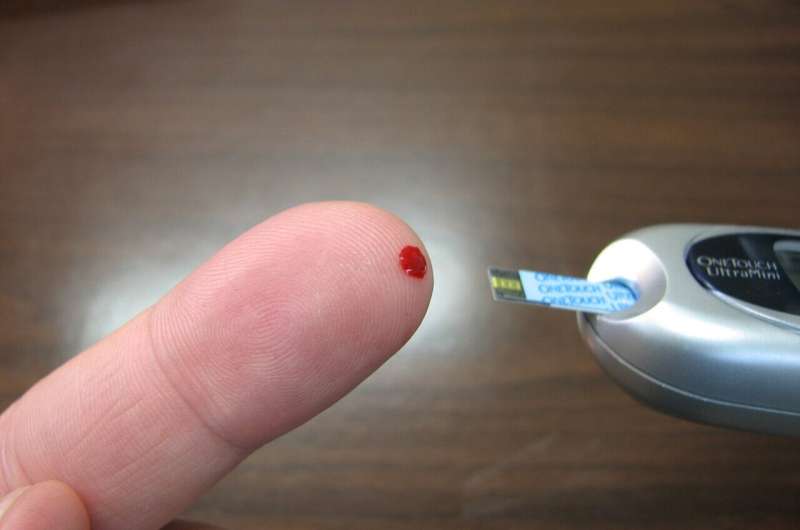This article has been reviewed according to Science X's editorial process and policies. Editors have highlighted the following attributes while ensuring the content's credibility:
fact-checked
peer-reviewed publication
reputable news agency
proofread
Managing blood sugar after stroke could be key to improving health

Managing a stroke victim's blood sugar levels after they receive powerful clot-busting drugs might help them survive their health crisis, a new trial finds.
People with high blood sugar levels were more likely to suffer a potentially deadly brain bleed after clot-busters reopened their blocked brain arteries, researchers found.
The risk was particularly high in older patients with more severe strokes.
"These data suggest that more focus and research is needed on the management of high blood sugar in the treatment of stroke patients, particularly those with higher risk, more severe strokes," said lead researcher Dr. Andrew Southerland, a neurologist with University of Virginia Health in Richmond, VA.
For the study, researchers analyzed data from a clinical trial involving more than 1,100 people, of whom 63% received treatment with clot-busting drugs. About four out of five patients had type 2 diabetes. About half of those who got clot-buster therapy were randomly assigned to receive intensive insulin treatment afterward, in an attempt to aggressively manage their blood sugar levels.
In general, high blood sugar after clot-busting therapy was associated with a greater risk of a brain bleed, researchers said. And every 10-point increase in average blood sugar increased the odds of a brain bleed by 8%.
Further, patients who reached a lower blood sugar level sooner after receiving clot-busting therapy typically fared better, results show.
However, the specific insulin treatment used in the trial did not make a significant difference in the risk for a brain bleed, researchers said.
The new study was published April 16 in the journal Neurology.
Even though the insulin therapy didn't work, the results highlight the importance of managing blood sugar levels, researchers said.
"One of the most important things patients can do to decrease their risk of stroke, particularly among diabetics, is work with their doctors and lifestyle to manage their blood sugar," Southerland said in a university news release.
More research is needed into ways to best manage a patient's blood sugar after clot-busting therapy, particularly for people who've suffered a severe stroke, Southerland said.
"We hope that these results will help inform future clinical trials looking at the treatment of blood sugar in higher risk patients with more severe strokes, particularly those undergoing clot-removal procedures," Southerland said.
More information: Andrew M. Southerland et al, Glucose Control and Risk of Symptomatic Intracerebral Hemorrhage Following Thrombolysis for Acute Ischemic Stroke, Neurology (2024). DOI: 10.1212/WNL.0000000000209323
The Cleveland Clinic has more about clot-busting drugs to treat stroke.
© 2024 HealthDay. All rights reserved.



















